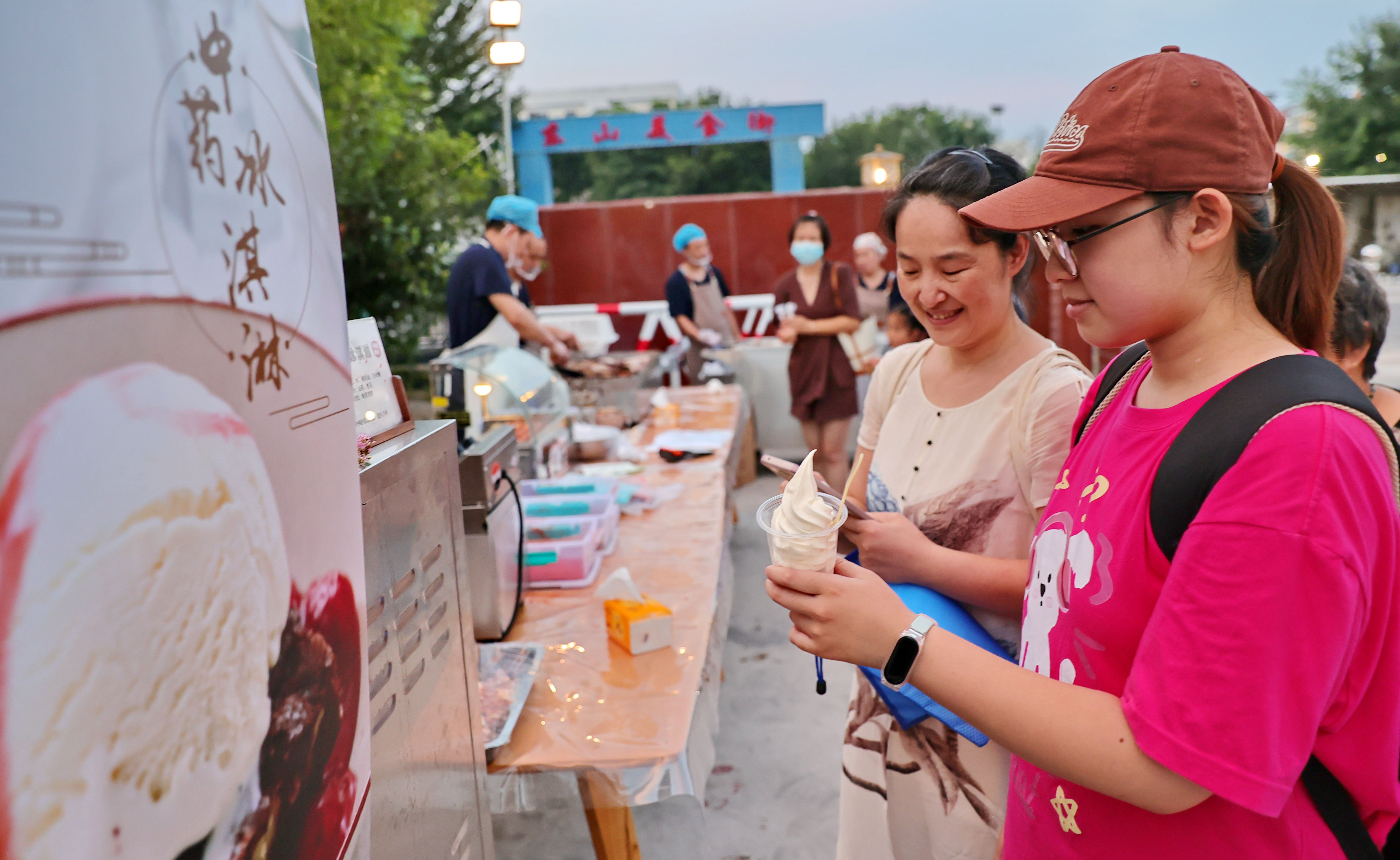TCM adds spice to modern diets for young consumers
THE ARTICLES ON THESE PAGES ARE PRODUCED BY CHINA DAILY, WHICH TAKES SOLE RESPONSIBILITY FOR THE CONTENTS

With a rising awareness of health and well-being, traditional Chinese medicine cuisine is gaining traction among consumers in China.
TCM drinks, bread, ice cream, hotpot — there has been a trend in the catering industry of incorporating Chinese medicinal ingredients into various food and beverages. Once labelled as an ordinary supplement, it has become unique, more expensive and popular, especially among youngsters.
At the Peerless Tea Delights shop in Xining, Qinghai province, various Chinese herbs are on show in glass boxes. Meanwhile, waiters serve porridge that can strengthen the spleen and stomach, desserts that can relieve the summer heat, and tea that can improve immunity.
It was run by a TCM clinic that the family of Wu had opened for about 100 years.
Yang Yilin, 20, bought a cup of “lung-clearing and throat-moistening” tea.
“Overall, I feel it’s quite good. It’s not as bitter as I had imagined. Instead, it starts off somewhat sweet and ends with a slight herbal taste,” she said.
Though the beneficial effect is not pronounced, Yang believes it’s more healthy than snacks such as fried food, to leave “less of a mental burden”.
Tong Ren Tang, a time-honoured TCM brand, introduced brand Zhima Health in 2019 based on the concept of “medicine and food sharing the same source”.
Zhima Health has put forward various types of regimen-related products, including herbal coffee, herbal tea, bird’s nest and lily rice cakes.
Its eight red jars with extracts from herbs such as raspberry, hawthorn and sesame can be eaten directly or diluted with warm water to spread on bread or toast. The jars are one of the bestsellers among tired office workers. Each costs about 200 yuan (£21.60).

“Our main customers can be categorised into three groups: fashionable individuals who pursue quality food and prioritise health; white-collar office workers in a suboptimal state of health who urgently need to address unhealthy lifestyles and dietary habits while adjusting their mental state; and urban consumers with health-conscious habits who pursue comprehensive health management, and have specific requirements for daily food ingredients, preparation and taste. They aim to enhance personal health through continuous and effective wellness practices,” the company said.
Besides food, Zhima Health offers offline health consultation services.
Like Tong Ren Tang, many leading TCM companies are investing in the food sector, tapping into the potential of a market yet to be fully explored.
According to an investigation initiated by the National Bureau of Statistics, health and wellness ranked third in the consumption rankings of young people aged 18 to 35.
“The demand for fashionable health maintenance is increasing. Wellness is no longer exclusive to the elderly,” said Zhang Jingchun, a doctor from the cardiovascular centre at the Xiyuan Hospital of China Academy of Chinese Medical Sciences in Beijing.
“With the rise in living standards and increased life pressures, discomforts like insomnia, dizziness, palpitations, chest tightness, digestive issues and stress-induced obesity are on the rise. There is a growing desire to improve physical conditions,” Zhang said.
However, the use of TCM cuisine should take into consideration one’s age, gender, weight and other factors, as well as the different seasons, she said, adding that a small intake each time is preferred.
In terms of whether TCM cuisine can truly benefit health or is just a marketing method, Zhang said it depends on whether it’s a reasonable matching of ingredients and the amount in each product.
“You cannot truly count on TCM cuisine to significantly improve health. If you really feel uncomfortable, you’d better see a doctor,” she said.
Zhu Sidi and Li Boyu contributed to this story.

Bookmark popover
Removed from bookmarks